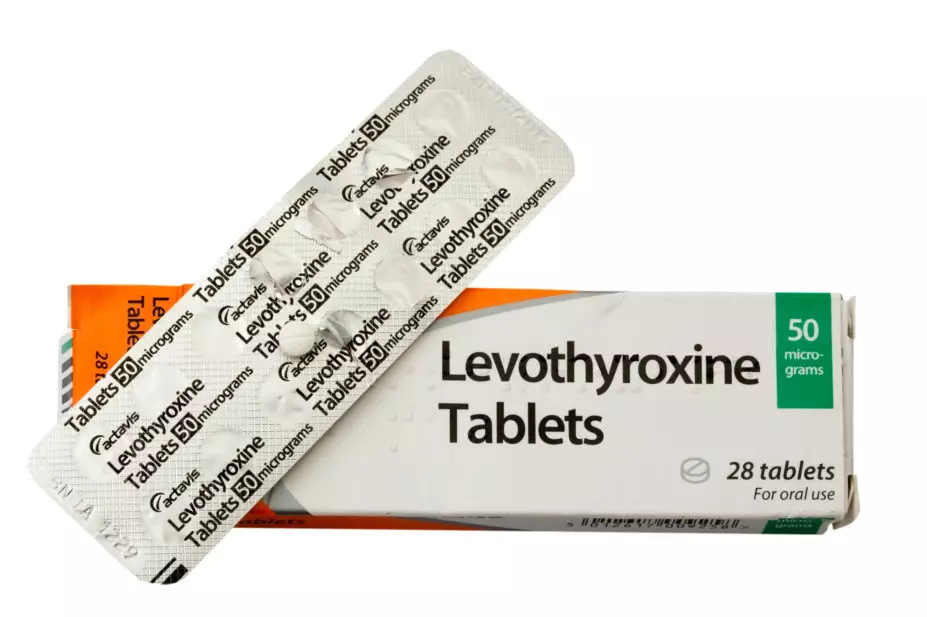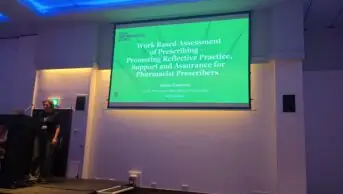
Angela Serena Gilmour / Alamy Stock Photo
The amount of levothyroxine dispensed in England increased by more than 60% in the decade between 2008 and 2019, analysis of NHS primary care prescribing data has shown.
And, in 2019, the number of levothyroxine prescriptions dispensed in the community was surpassed by only one other drug, atorvastatin.
Levothyroxine is a thyroid hormone used predominantly to treat overt hypothyroidism, a condition where the thyroid gland cannot produce enough of the hormone thyroxine (T4), despite the pituitary gland releasing increasing levels of thyroid stimulating hormone (TSH).
It may also be used to treat individuals with subclinical hypothyroidism (SCH), a biochemical state whereby TSH levels are slightly elevated, but the T4 level is still within the reference range.
Individuals with hypothyroidism often present to primary care with common symptoms, such as tiredness, weight gain, muscle cramps, dry skin, cold sensitivity and depression.
Overt hypothyroidism is found in just 2% of the UK population, while the estimated prevalence of SCH is 4–20%.
However, analysis of NHS primary care prescribing data by The Pharmaceutical Journal found that between 2008 and 2019, the amount of levothyroxine dispensed increased from 20,426,378 prescriptions to 32,956,754 prescriptions.
Matthew Heppel, an advanced clinical diabetes and endocrinology pharmacist at Hull University Teaching Hospitals NHS Trust, said that the increase in prescriptions was likely to be the result of increased thyroid testing.
“When I first started pharmacy, more than ten years ago now, it wasn’t something that got tested for as much as it probably should have been,” he said.
“So, if a patient with diabetes comes and says ‘I feel a bit tired, my skin’s a little bit rubbish’, people often attribute that to the current disease. They don’t tend to look much further.”
Heppel said he believed that practice was “changing” and, as a result, prescribers were thinking more holistically about patients.
“I have diabetes and I know that I’ve been tested twice now for hypothyroidism, purely just based on my symptoms, which actually are also attributable to diabetes.”
However, some experts argue that levothyroxine should not be used to treat SCH.
In 2019, the BMJ published rapid recommendations put together by a guideline panel, which included a “strong recommendation” against the use of thyroid hormones in adults with SCH, after a systematic review of randomised controlled trials showed that hormone treatment did not improve quality of life or symptoms in SCH.
But the recommendations were met with disagreement by the Society for Endocrinology and British Thyroid Association, which said that they could lead to some patients missing out on vital treatment if their condition progresses to overt hypothyroidism.
“If I was going to prescribe [levothyroxine], I personally would say: ‘This is a trial therapy; let’s give you treatment for three to six months, and then see what happens to your symptoms’,“ said Ma’en Al-Mrayat, a consultant endocrinologist at University Hospital Southampton NHS Foundation Trust.
“[Then] if they come to me six months down the line and say ‘I don’t feel any different’, I can take them off the medication, [and] because we had a plan at the beginning, it doesn’t come as a shock.”
READ MORE: ‘It’s a murky business’: the row over levothyroxine use in ‘subclinical’ disease


